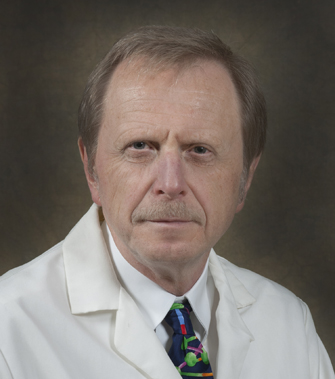Stephen Krawetz
Academic Rank
Charlotte B. Failing Professor and Research Educator (full time)
Courses taught
CSE 461 - Instructor. Oakland University, Bioinformatics.
Research
To achieve a Systems Biology level understanding of the genetic mechanism(s) that controls the selection of genes for development and differentiation.
Current Research Program:
We have directed our studies toward defining how gene loci are selected for expression by the mechanism termed potentiation, i.e., the opening of chromatin domains. Understanding the selective expression of our genome is fundamental to achieving the ability to reprogram our genome, the ultimate self-help therapeutic. My laboratory is using the endogenous and transgenic human and mouse protamine gene clusters as model systems of chromatin mediated differentiation. The epigenetic studies that we are pursuing extend from nuclear structure-histone modification to the role of non-coding RNAs as modulators of gene expression. Determining how these multiple levels of control interact and feedback to the genome to modulate chromatin structure and thus transcription is explored at the genome-wide systems level. We continue to use and develop state-of-the-art technologies that now include expression and ChIP based microassays alongside deep sequencing using computational capacity. The use of pipelining-grid computing and other strategies for high throughput bioinformatic analyses will help draw together our understanding of gene expression and chromatin structure. We are beginning to uncover the complex set of processes that lead to successful conception and a healthy child. These incorporate both the genetic and epigenetic impactors of the fetal onset of adult disease, including the delivery of spermatozoon RNAs at fertilization. This population of RNAs is likely to provide an essential component of early paternal genome reprogramming. By understanding the system of chromatin structure and how associations with nuclear organizers affect transcript regulation, we will provide a key to unlocking the mechanism of genome reprogramming. With the ability to use one’s own genome, this will certainly help bring self-help therapeutics, like gene therapy, from the bench to the bedside.
Publications
- Abdallah BY, Horne SD, Stevens JB, Liu G, Ying AY, Vanderhyden B, Krawetz S.A., Gorelick R, Heng HH (2013). Single cell heterogeneity: why unstable genomes are incompatible with average profiles. Cell Cycle 12:3640-3649. PMID: 24091732
- Mao, S., Goodrich, R.J., Hauser, R., Schrader, S.M., Chen, Z. and Krawetz, S.A. (2013) Evaluation of the effectiveness of semen storage and sperm purification methods for spermatozoa transcript profiling. Systems Biology in Reproductive Medicine 59: 287-295. PMID:23869956
- Sendler, E., Johnson, G.D., Mao, S., Goodrich, R.J., Diamond, M.P., Hauser, R., and Krawetz, S.A. (2013) Stability, Delivery and Functions of Human Sperm RNAs at Fertilization. Nucleic Acids Research 41:4104-4117. PMID: 23471003Jodar, M., Selvaraju, S., Sendler, E., Diamond, M.P. and Krawetz, S.A. for the Reproductive Medicine Network (2013) The presence, roles and clinical use of spermatozoal RNAs Human
- Reproduction Update 19:604-24. PMID: 23856356
- Kaur, H., Mao, S., Shah, S., Gorski, D.H., Krawetz, S.A., Sloane, B.F. and Mattingly, R. (2013) Next-generation sequencing: a powerful tool for the discovery of molecular markers in breast ductal carcinoma in situ. Expert Review of Molecular Diagnostics. 13:151-165. PMID: 23477556
